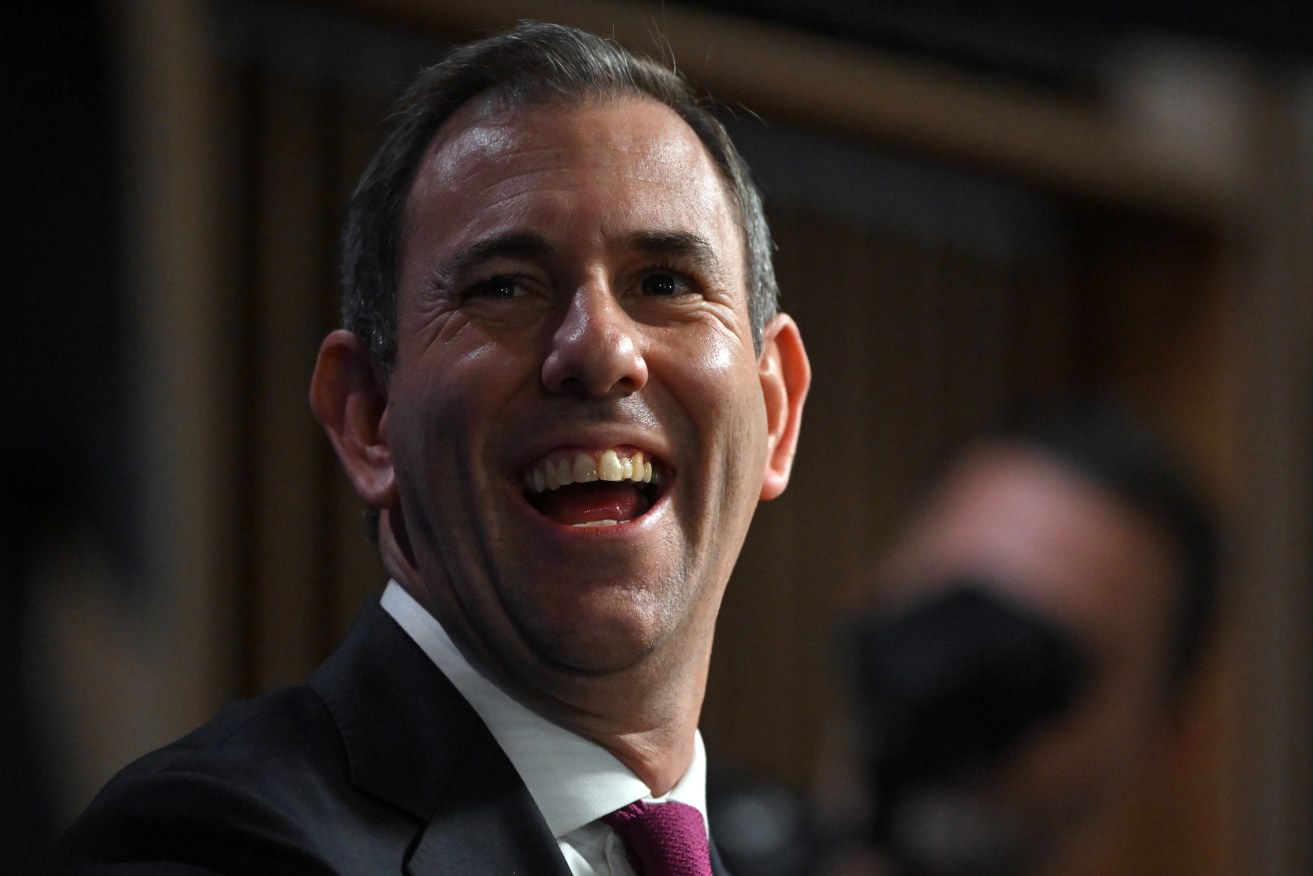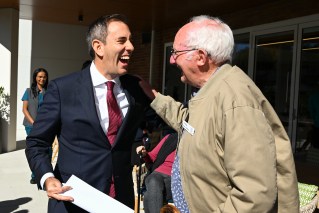Inflation pegged at 3.4 per cent for past 12 months, pleasing markets, pollies
Australia’s consumer price index held steady at 3.4 per cent in the 12 months to January, coming in below expectations.

Federal Treasurer Jim Chalmers at the National Press Club of Australia in Canberra, (AAP Image/Mick Tsikas)
The index had been widely expected to rise by 3.6 per cent on an annual basis, when the data was released by the Australian Bureau of Statistics on Wednesday.
The biggest contributors to the January increase were housing (4.6 per cent), food and non-alcoholic beverages (4.4 per cent), alcohol and tobacco (6.7 per cent) and insurance and financial services (8.2 per cent).
Working in the other direction was recreation and culture, down 1.7 per cent over the 12 months, led by a sharp fall in holiday travel and accommodation prices.
When volatile price changes like automotive fuel, fruit and vegetables, and holiday travel were stripped out, the index moderated slightly.
An annual rise of 4.1 per cent was recorded in January, down from 4.2 per cent in December.
Only some of the basket of goods and services captured in the quarterly report are updated each month and economists say the results can be volatile month to month.
Ahead of the release, Treasurer Jim Chalmers warned the monthly readings could be less reliable than the quarterly measure.
“But the overall direction of travel is clear: annual inflation moderated to a two-year low at the end of last year, but we would like it to moderate further and faster,” he said.
The central bank has been lifting interest rates to bring down inflation and, although is getting closer to its two-three per cent target range, is forecasting a prolonged final stretch to get there by 2025.
Construction work done data was also released by the bureau on Wednesday and showed total work up 0.7 per cent over the quarter, driven by engineering.
At midday on Wednesday the benchmark S&P/ASX200 was down 15.7 points, or 0.2 per cent, to 7,647.3, while the broader All Ordinaries had dipped 19 points, or 0.24 per cent, to 7,903.2
A half hour earlier the Australian Bureau of Statistics reported that consumer prices rose 3.4 per cent in the 12 months to January, unchanged from a month earlier.
Excluding the volatile items of fuel, holiday travel and fruit and vegetables, inflation was 4.1 per cent, down from 4.2 per cent in December.
IG market analyst Tony Sycamore said while the Reserve Bank would be pleased with the progress on inflation, it was worth remembering that the monthly CPI reports are mostly concerned with the prices of goods.
They don’t capture the service-sector inflation the central bank is most concerned about, which will be detailed later in the quarterly readout.
Eight of the ASX’s 11 sectors were lower at midday, all except energy, materials and technology.
Telecommunications was the worst laggard, dropping 1.4 per cent as Telstra fell 2.0 per cent.
Flight Centre was down 9.3 per cent to a two-month low of $19.93 after the travel retailer announced slightly weaker-than-expected first-half earnings.












